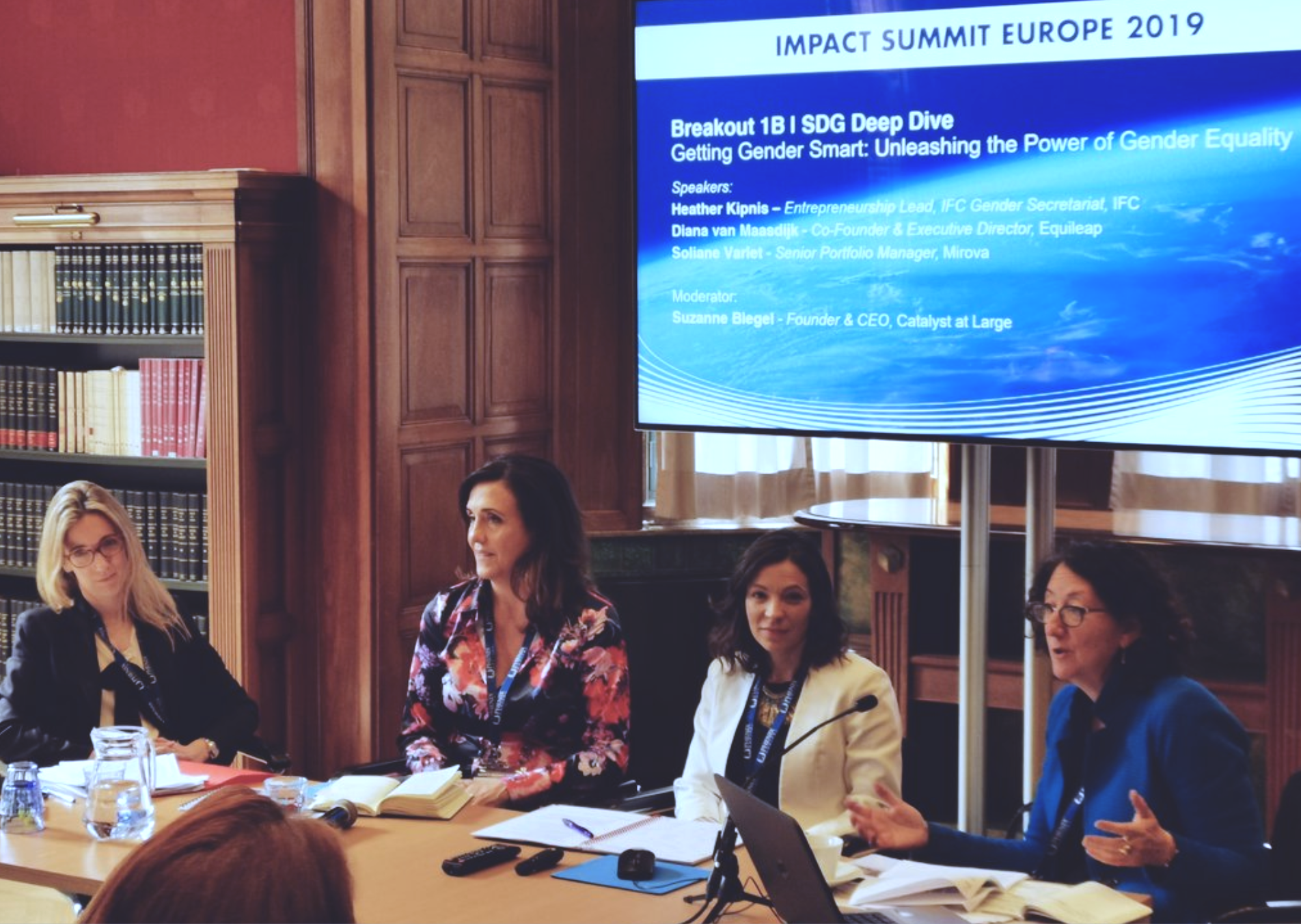ImpactAlpha, April 3 – European institutional investors representing €12 trillion gathered in the Netherlands yesterday at Phenix Capital’s fifth Impact Summit Europe to share strategies for optimizing – and scaling – impact. A few takeaways:
- Impact-weighted. “The impact revolution will affect every one of your portfolios,” Sir Ronald Cohen told the summit. It took 90 years to come up with generally accepted accounting principles. Cohen says we now need to a singular generally accepted framework for impact. The efficient return frontier, says Cohen, is actually higher up for impact, risk and return strategies than just risk-return strategies. That’s because “the impact dimension affects both risk and return sides.” Just as risk thinking at some point brought optimization, says Cohen, finance now needs impact-weighted financial accounts.
- Impact mandates. ASR Asset management has carved out a €300 million per year, or 3% of the portfolio, mandate for impact investments focused on the energy transition and affordable housing, says ASR’s Jack Julicher. Maurice Klaver of PGGM, the Netherlands’ second largest pension fund, says the fund has a €20 billion dedicated impact mandate in public equities and over the next five years will create a new €500 million private equity impact mandate.
- Gender alpha. Mirova is launching the Mirova Women Empowerment Approach fund to focus on companies that promote women’s access to top management positions. The IFC’s Heather Kipnis talked about how gender-balanced investment firms outperform mostly male – and mostly female – firms.
- Public option. What can governments do to mobilize more capital for impact? Create a secondary market to provide liquidity, and change regulations to reward and incentivize companies leading on impact rather than implementing punitive measures for bad actors.
- Scaling with integrity. Slow and steady is not going to win the climate race. Impact investing needs “more investors, moving faster, at greater scale, with integrity,” said the GIIN’s Amit Bouri.











